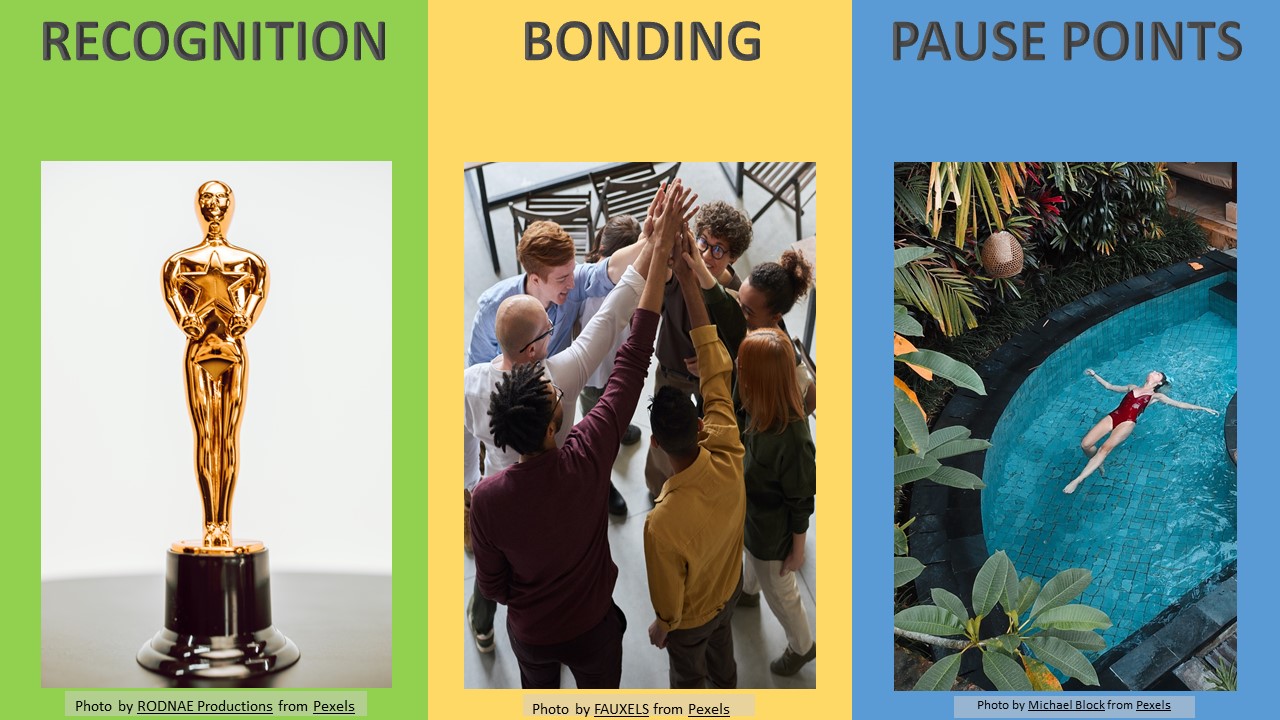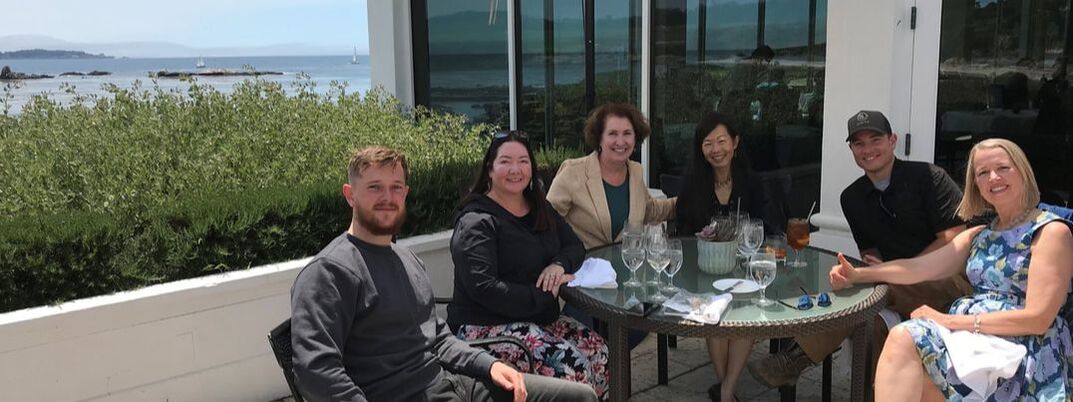|
Strong leaders use celebrations to reinforce teams learning and strengthen team bonding. Calendaring celebrations during and at the close of projects will help team morale, commitment, and performance. They are opportunities to express gratitude, which improves employee productivity and talent retention.
Calendaring celebrations is essential for long term success because celebrations recognize accomplishments, create bonding, and create necessary pause points for your team. 1. Celebrations Recognize Accomplishments Recognizing accomplishments ensures your team knows you appreciate their win and their hard work achieving it. When recognizing a goal reached, be sure you recognize the effort it took to get there. Mention when the journey began, how far you came, what changed along the way, and what obstacles you overcame. If the goal itself changed or your process had to be rehauled, be sure to recognize that shift as a significant point in the journey. Take this opportunity to express gratitude for each team member’s unique contribution to the whole. When they realize you truly appreciate their value, you not only improve their performance, but also develop loyalty and improve long term retention. Ask your team leaders what the hurdles were, and of what they are most proud. Elevating the story of these victories reminds them that you support them along every journey, even if you are not visibly in the weeds with them. This helps to motivate your team in the future, and helps them to see that adversities arising mid-stream will make for great stories when all is behind you. Group self-evaluation also trains team members that evaluating performance with a focus on what was learned is highly valued in your organization. Developing a culture and habit of self-evaluation will increase learning and performance over time. And as long as team members keep learning, they are more likely to stay on. 2. Celebrations Create Bonding Among Teams Gathering to celebrate progress helps team members value everyone’s contributions to the greater effort, and increases their desire to perform successfully for the team. When teams are getting along well, celebrating helps to cement that good will, improving retention rates and productivity. Yet every team is sure to find friction among its members during a project. Remembering those friction points and recognizing how team members resolved to work together highlights the strength of your team – their resilience and fortitude. These reminders help them focus on solutions rather than problems, which of course helps the next time friction arises. When you demonstrate gratitude for your team members, you model healthy interpersonal skills and set a positive, constructive tone for your team culture. It also demonstrates that you know team friction happens and that you value solutions most of all. Whether the team worked well together or struggled to find harmony, celebrating togetherness at the completion of your project affirms teamwork going forward. Recognizing any subtle or behind-the-scene contributions also helps everyone see that you are, in fact, a team, and that everyone contributes as best they can. Affirming this bond increases productivity and, of course, talent retention. 3. Celebrations Create Pause Points "Congratulations on our Q4 results. You all went the extra mile to make our company a real success. Our next goals is..." How many of us have experienced the recognition for a job well done that is followed in the same breath with a focus on the new goal? Moving directly from recognition of an accomplishment straight into the next goal is a great way to fatigue and alienate your team. If this is how you celebrate, you will soon see your best people depart. Creating a Pause Point, a team-wide deep breath, after completing a big project is important, and the best way to initiate the pause is with a celebration. Take time to celebrate all of the effort, all of the learning, all of the bonding, and then give your team a breather. Granting a breather shows you truly do appreciate everything you just recognized. It validates the importance of the accomplishment you have just celebrated, and gives your team opportunity to recharge before launching on the next task. Even if it is just letting them leave an hour or two early for smaller projects, granting space to recuperate shows that you value your team’s time and effort. Pauses also let deeper experiences bubble up to conscious awareness, which creates opportunity for greater individual and group learning. A group pause after an accomplishment lets the bonding from the project set in permanently. It reinforces that the accomplishment was a team accomplishment – accomplished together and celebrated together. Pause Points are essential for long term talent retention, too. Your team surely gave you an extra effort during the project; giving back a little afterward is a concrete way to show gratitude. ***** Leading your team means accomplishing goals large and small. Leaders know that celebrations are important for milestones, and help most when coinciding with pause points before moving forward again. Calendaring moments for your team to reflect on accomplishments reinforces the positive aspects of the relationships on your team. Recognizing accomplishments, bonding teams, and creating healthy pause points will help your team achieve long term success. Contact Network for Impact to learn more about making essential celebrations for your teams at [email protected].
0 Comments
Leave a Reply. |
Megan Mayer
|


 RSS Feed
RSS Feed